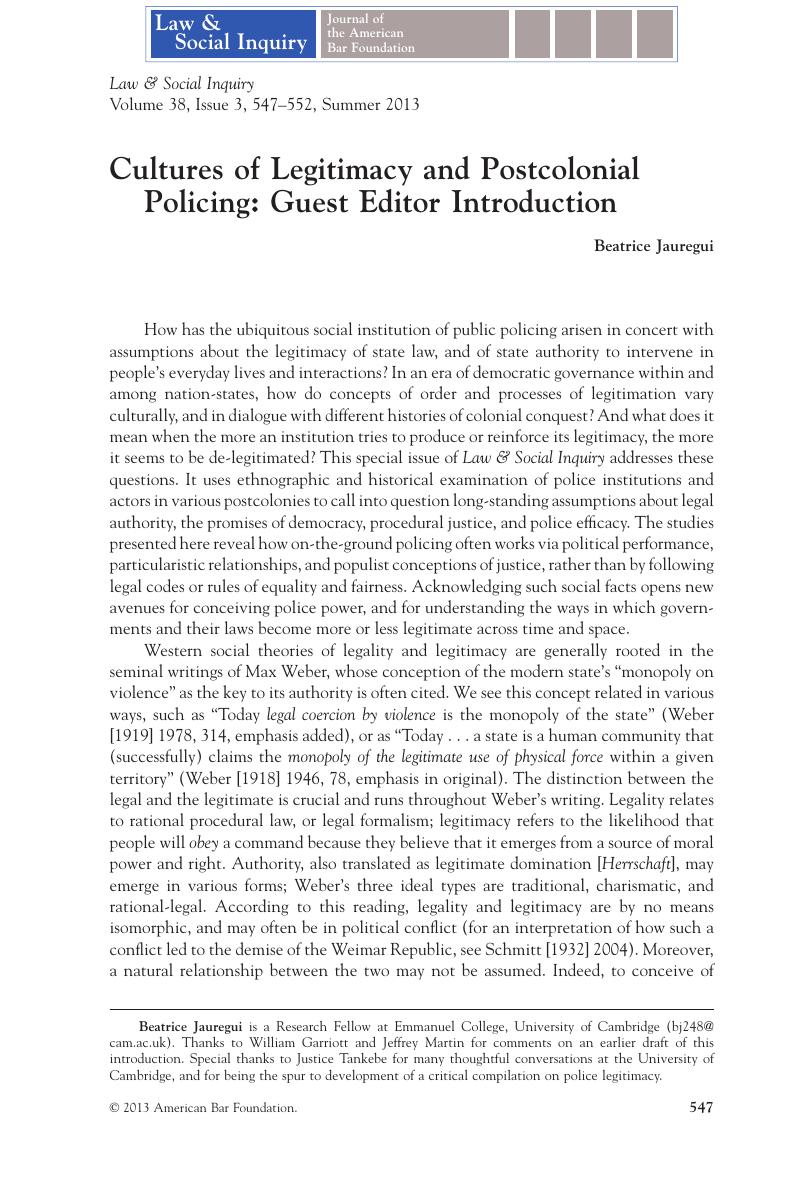Crossref Citations
This article has been cited by the following publications. This list is generated based on data provided by Crossref.
Manning, Peter K.
and
Martin, Jeffrey
2015.
International Encyclopedia of the Social & Behavioral Sciences.
p.
246.
Mutsaers, Paul
Simpson, Jennie
and
Karpiak, Kevin
2015.
The Anthropology of Police as Public Anthropology.
American Anthropologist,
Vol. 117,
Issue. 4,
p.
786.
Martin, Jeffrey T
2016.
Calling the police, more or less democratically.
Theoretical Criminology,
Vol. 20,
Issue. 4,
p.
462.
Streicher, Ruth
2017.
Reconfiguring Intervention.
p.
141.
Jaffe, Rivke
and
Diphoorn, Tessa
2019.
Old Boys and Badmen: Private Security in (Post)Colonial Jamaica.
Interventions,
Vol. 21,
Issue. 7,
p.
909.
van Stapele, Naomi
2020.
Police killings and the vicissitudes of borders and bounding orders in Mathare, Nairobi.
Environment and Planning D: Society and Space,
Vol. 38,
Issue. 3,
p.
417.
Chand, Anand
Karan, Maureen Fatiaki
and
Goundar, Pariniappa
2022.
Public Perceptions of Police in Fiji.
Journal of Contemporary Criminal Justice,
Vol. 38,
Issue. 3,
p.
295.



